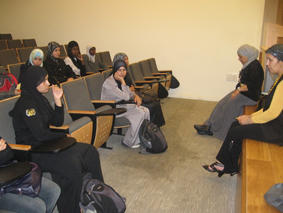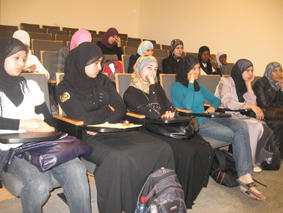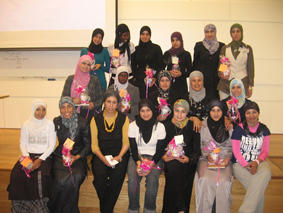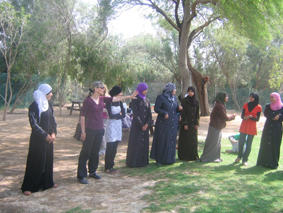Out of the Frying Pan into the Fire: Bedouin Women Negotiating Tribal and State Patriarchies
Fatma Kassem – 2011
This paper explores the primary obstacles with which Bedouin women from the Negev are confronted if they attempt to pursue higher education. It then shows to what extent these women have developed specific negotiation patterns to circumvent and overcome difficulties both within the tribal-family context and, outside, in their schools or universities. In order to closer investigate the perceptions, goals and attitudes of Bedouin women with respect to education, I conducted semi-structured, in-depth interviews with eleven young Bedouin women who have studied in institutions of higher learning. In addition, six focus groups of Bedouin women and men were set up, all of whom came from planned settlements and “unrecognized villages.” The main findings of this research show that both tribal- and state-institutional patriarchies form the ideological grounds for diminishing the significance and value of education. As a consequence, education is not viewed as an empowerment tool, and its potentially liberating effects for their lives both as women and as Bedouin are likely to be forfeited. To counteract this threat, young Bedouin women have come up with strategies to effectively deal with these patriarchies. These include the specific use of cultural codes, symbolic-religious dress and various other resources to ensure the success of the women’s struggle for higher education. In doing so, they unsettle traditional structures and norms in such a way as to open up long-standing boundaries and reshape them significantly.
About the author
Kassem's Master's thesis, titled "Developing New Leadership Among Bedouin Women in a Changing World," 2000, explores how Bedouin women deal with the challenges facing them in the pursuit of higher education and how they mediate tribal and institutional patriarchy.
Fatma Kassem completed her PhD in the Department of Behavioral Science at Ben-Gurion University of the Negev. In her research, which stemmed from her deep interest in gender studies, she uses women's life stories to analyze how ordinary urban Palestinian women remember historical events.
Based on this research, a book is forthoming (February 2011) from Zed Publishers: Palestinian Women: Narrative Histories and Gendered Memories. Also, she conducted a study sponsored by the Center for Strategic and Policy Studies (School of Public Policy, The Hebrew University). This study analyzes women's images in history textbooks in Jordan to explore the ways in which the sacred triangle of Allah, al-Mlik, and al-Watan (God-Religion, the King-Regime and Nationalism) reproduce the gender-power relations in society and keep women subordinated to men.
Kassem has both academic and practical training in conflict resolutions. Together with Professor Dan Bar On of Ben-Gurion University of the Negev, she has been a co-facilitator and lecturer of a group of Jewish and Palestinian Israeli students at the University called "Co-existence Through Life Story Narrative." She has also served as facilitator and coordinator for the project "Two Conflicts, Four Countries" which involved university history teachers from Turkey, Greece, Palestine and Israel. Between the years 2005-2007 she co-directed and co-facilitated a group of Muslim, Christians and Jewish women in Jerusalem called "Jerusalem Women as Catalysts for Peace." Currently, she is writing a book based on the analysis of women's life stories who participated in two years project in Jerusalem.
During the 2007-2008 academic year, she was a fellow in the program “Europe in the Middle East – The Middle East in Europe” at the Wissenschaftskolleg zu Berlin.
Kassem herself is married and the mother of five children. She is the eldest of ten siblings and was the first women in her Upper Galilee village to attend high school and college.
Links
The Center for Bedouin Studies and development, Newsletter:
http://web.bgu.ac.il/NR/rdonlyres/24B57B4F-C2FE-4C6B-9596-74CAB74F5B9D/32056/Newsletter2008.pdf
Survey of Female Bedouin Graduates of Ben-Gurion University of the Negev Beer-Sheva, Israel:
http://web.bgu.ac.il/NR/rdonlyres/718C7DB8-8BD6-47CD-9C2A-16E824166341/94907/elsanaenglish.pdf




